Rosalba Rolón is the co-founder of Pregones and artistic director of Pregones/Puerto Rican Traveling Theater (PRTT). She spearheads the sustained development of the company’s acting and music ensemble, creative methodology, and original repertory. Originally from Puerto Rico, Rolón came to New York for her studies and found community and her artistic home in the city. Eric Swartz is a queer Salvadoran American theatermaker from Washington, DC (Piscataway) and currently based in Los Angeles, CA (Tongva) where he is an MFA Directing candidate in the School for Theater, Film, and Television at University of California, Los Angeles (UCLA). Both artists have spent many years advocating and making space for their cultural identities to be represented on and off stage. Their conversation is a reminder of the world many Latinx artists have had to imagine themselves and others in—the world they have created the spaces for.
Vamos a inventarnos algo / Let's Make Something New
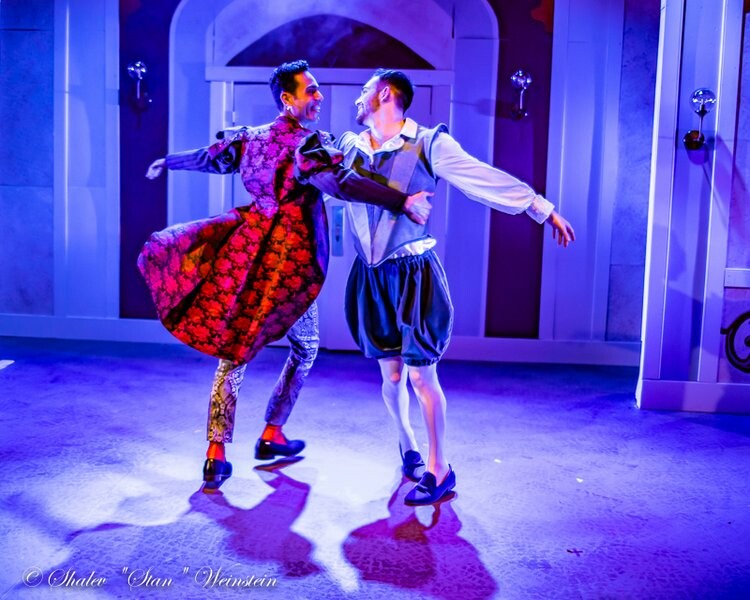
Rodin Alcerro and Sam Fromkin in Príncipe y Príncipe by Perla Szuchmacher at GALA Hispanic Theater. Directed and Adapted by El Chelito. Scenic design by Megan Holden. Costume design by Alison Samantha Johnson. Lighting design by Hailey LaRoe. Sound design by navi. Properties by Amy Kellett. Stage manager Justine Morris. Production manager P. Vanessa Losada. Photo by Stan Weinstein.
Eric Swartz: I’ve been an admirer of your work for a long time, and of your leadership within the theatre community, especially with Latinx theatre artists and cultural workers. Can you share your initial impetus for a career in the theatre?
Rosalba Rolón: It’s hard to pinpoint that one moment. It’s almost a series of moments that led to a conclusion. On my father’s side of the family, there was a very strong artistic vein. My grandmother was a young actress. She never pursued a career because at that time it was very hard. She was a high school actress.
Her pivotal role was that of Don Juan Tenorio. She went without her father’s and mother’s permission to the salon, and she asked them to cut her hair to look like a boy. All hell broke loose when she got home. My great-grandfather wanted to stop the production and went to the mayor. The mayor said no, and the production went on. For the rest of her life, my grandmother never let her hair grow again. I think that that story was told to us when we were very little, and somehow you don’t think about it at the moment, but it haunts you in a good way. It grabs you when you least expect it.
When I was in middle school in Puerto Rico, there was a great program in the Department of Education called Arte en la Comunidad. They would pay the artists and companies to go to communities and perform for free. In our case, they would pay companies to create pieces that could be adapted to a classroom. So my first experience watching a classic was sitting on the floor in middle school for a production of Lope de Vega’s Fuenteovejuna. They put all the seats in the back of the room, and we all sat and watched these artists do their magic. That is the one moment that is vivid in my mind. When I looked at that, I said, “I want to do that.”
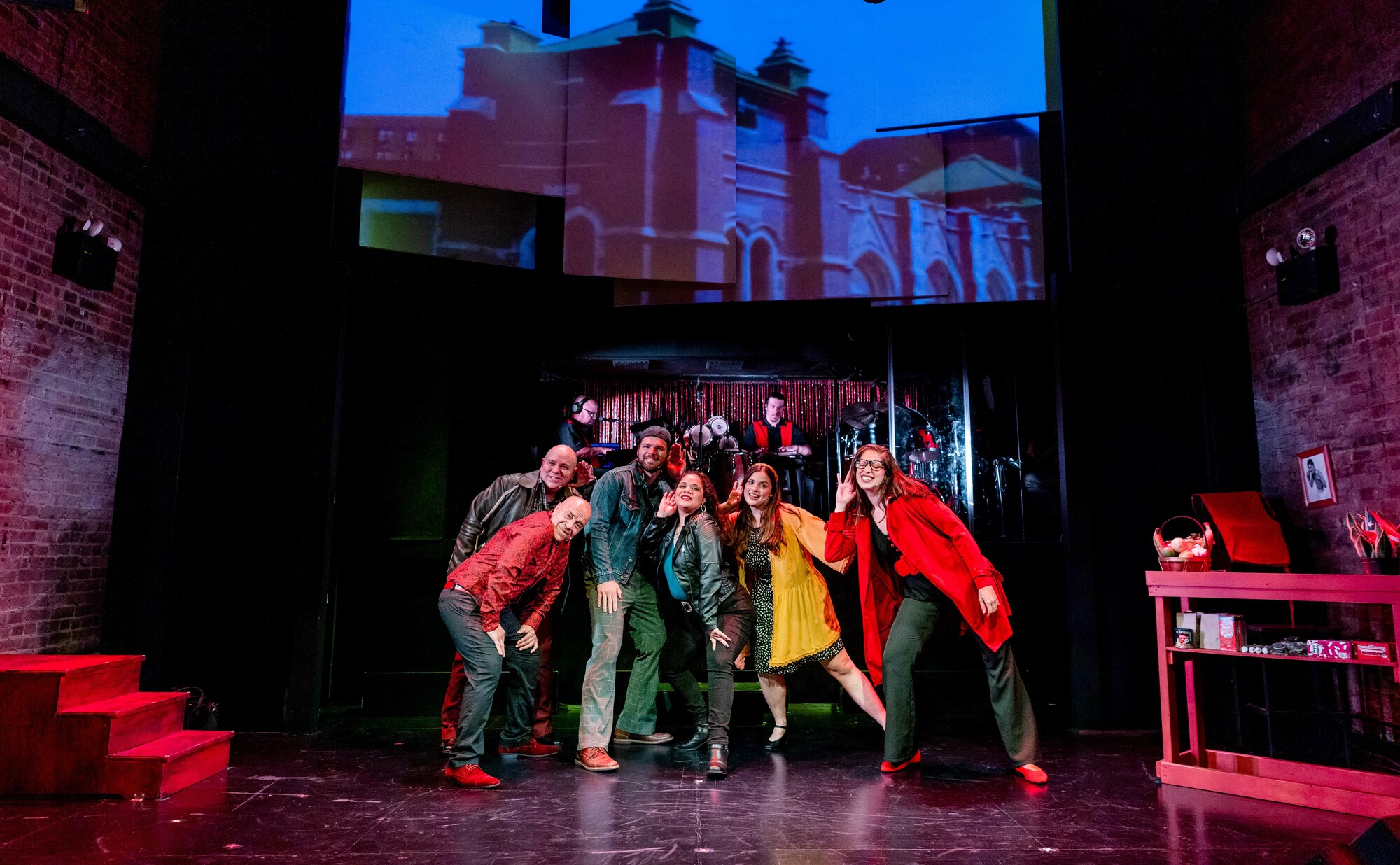
The cast of TORCHED directed by Rosalba Rolón at Pregones/PRTT. Book and lyrics by Rosalba Rolón. Music composition and arrangement by Desmar Guevara. Assistant directed and movement coached by Yaraní Del Valle Piñero. Lighting design by Lucrecia Briceño. Projections design by Eamonn Farrell. Costume design and scenic consulting by Harry Nadal. Stage manager Julia Perez.
When I went to university, I chose not to study theatre. I chose social sciences and psychology, and then I would leave after my last class to take my music lessons, my theatre lessons. When I moved to New York, I was practicing in the social service sector. I wasn’t happy. I learned about a beautiful place downtown called Solidaridad Humana, now called the Clemente Soto Vélez Cultural Center. They had a theatre workshop, and I auditioned. The workshop leader was Elia Enid Cadilla, a magnificent Puerto Rican actress who I admired. And she said, “Yeah, you have experience. Just come join the workshop.” And that’s what I did.
I had come with a lot of knowledge from Puerto Rico about the ensemble movement in Latin America, and I was pretty inspired by that. Elia Enid’s approach in the workshop was also ensemble-based. So, I was starting to get my blood burning inside of me.
Eric: It sounds like that tradition you were exposed to in Latin America and then in New York was part of the impetus for you to start an ensemble-based company.
We all wanted to continue to expand the Puerto Rican theatre experience in New York City.
Rosalba: I did not start this thinking I’m going to lead an ensemble. I wanted to be an actress. It was while I was working in Queens with Dumé Theater Company, which eventually became Thalia Spanish Theatre, that I began to work with two amazing individuals, Luis Meléndez and David Crommett. Luis especially had come from a very well-developed theatre career in Puerto Rico in political theatre, ensemble theatre, guerilla theatre, and street theatre. And we kept saying, “Why don’t we think of something? Let’s just, vamos a inventarnos algo.” It was an invento. And that’s when we began to dream of building an ensemble the way we have it today now.
We all wanted to continue to expand the Puerto Rican theatre experience in New York City. So we had this crazy dream of saying, “What about if we present a scene from all the great Puerto Rican theatre?” We came up with about sixty-five plays. I said, “We cannot do sixty-five scenes.” So we ended up selecting one pivotal scene from one important play for each decade over a hundred years. We ended up with ten beautiful scenes that we called La Colección.
That was our first piece. Not yet dreaming of being a company, but rather a group of friends playing together and figuring it out and hoping we could present it while we were still working in our theatres with the people we admired and loved.
Eric: When did you realize you were a part of a national ecosystem of like-minded institutions or companies?
Rosalba: I realized it much later than I understood. In other words, it had been happening for a while before I thought, “Oh my goodness.” When I sat at the table or at the first ever national panel I did and saw the applications and I said, “Oh my goodness, I know almost everyone.”
Pregones Theater was founded as a touring company. For years before we had a venue, the only thing we did was tour all over the country. At last count it was 537 cities in the United States, 37 states, and 18 countries. That’s a life, right? And a lot of our presenters were not the huge presenters. They were the community-based theatres, the student associations in universities. Whenever the Latino or Hispanic theatre association at the time could find a space, we would perform, because that is the kind of work we did. That opened up a huge panorama for us in terms of a national understanding of where we were at, of the different cultures represented within our Latinx collective culture or cultures.
By mentoring, and by leading by example and working collectively, we can ensure some of these careers become viable.
One day a friend said to me they were looking for panelists for funding. I said, “I don’t know anything about that.” She says, “Well, maybe you can start.” And I began modest participation locally and eventually that turned into an invitation from the National Endowment for the Arts, and I did then have a much better understanding. But I also began to see the flaws in our system, began to see how much we were not part of and how we needed to really figure out a way to convey that information and say to people, “We need to participate. We need to get these grants. We need to move into different spheres.” There is something in there that you not only need, but that you must be a part of if you want some change to happen.
Today I’m pretty comfortable navigating this world, but it takes time. But by now, there are enough of us to mentor and put the foot on gas. There are no shortcuts, but there is a way to accelerate the learning.
Eric: Your work with the National Association of Latino Arts and Culture (NALAC) has also been in the vein of mentorship, with you leading and helping to organize the Leadership Institutes. Why is mentorship of future generations so important to you?
Rosalba: By mentoring, and by leading by example and working collectively, we can ensure some of these careers become viable. That they don’t have to wait as long as we had to wait to make it.
I talk to parents quite a bit to ensure they motivate their kids to follow their dreams. We need to really make sure the doors are open for younger generations to not have to wait years and years, but to be able to start as early as they want in this career.
What do we have to do to open that door? We kick it a lot. Sometimes you get tired of kicking but frankly we have to get in. When I’m with NALAC and Alianza Latina or with the Latinx Theatre Commons (LTC), I don’t have to wear a costume. That’s the big difference.
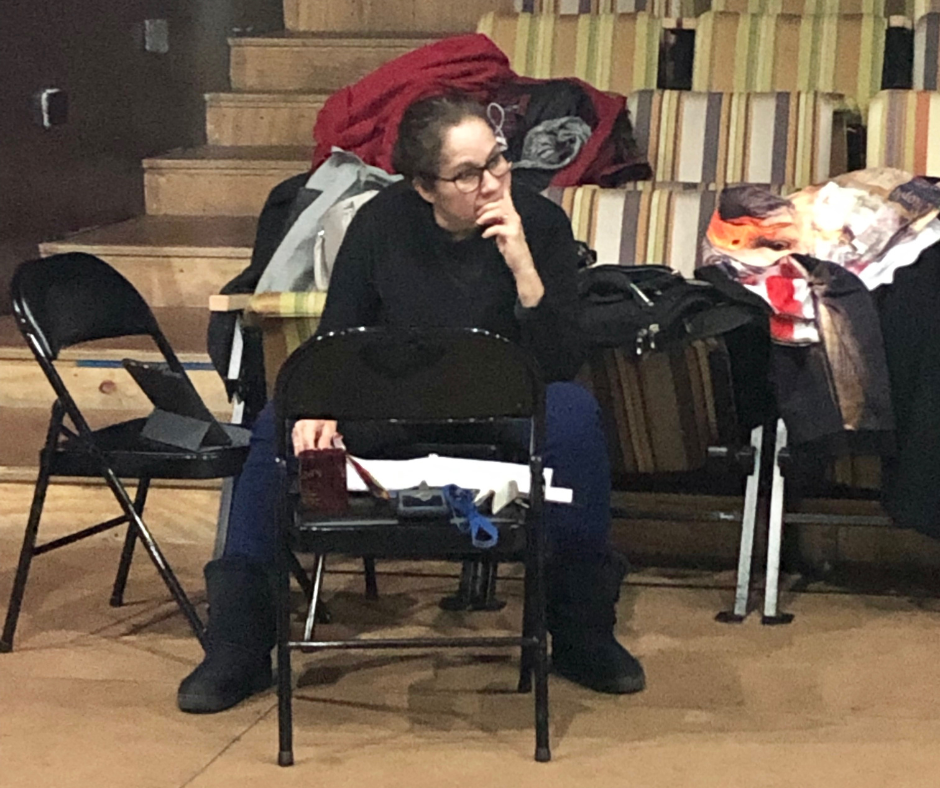
Rosalba Rolón in rehearsals for TORCHED with Pregones/PRTT.
Eric: What dreams are you still chasing?
Rosalba: We’re looking at the future of our theatre. What is my next phase in the next five years or so? We are leaving room for new leadership, obviously. We’re in that conversation.
There is a difference between institutional detachment and artistic detachment. So what does that look for us? It’s funny, because my most recent blog on our website, I called it Creative Vertigo, and it is vertigo. It’s a lot of things fighting inside of me for my attention artistically, and then thinking practically, What are the things that I’ve done that I would like to revisit?
What are those things that are new in my head? I remember, as part of a NALAC Visiones documentary, we interviewed some artists, and one of them said once when he was asked what his favorite project was, he would answer, “The next project.” I think that’s such a great answer.
Eric: I’m curious, what advice would you give to your younger self or to someone who is in the earlier phases of their career?
Rosalba: It sounds a bit cliché, but: know you’re not alone. I would love to have known I could have jumped in the pool earlier because there was someone to save me.
I live in a city where there are a lot of people around who can help, but there’s some places where these things don’t abound. I want to make sure we convey the message that we are within a Zoom step away from continuing to build our community, so that if your geography doesn’t provide with those resources, that they are nationwide. And for those of us in big cities, do not take for granted the fact that we’re here.
All you can do is hope that your voice will sembrar una semilla, that you throw a seed and hope for it to grow and for at least a branch to come out of it, for now.
Eric: What do you think the possible impact of the National Latinx Theater Initiative providing grants to teatros, specifically for general operating support, can be?
Rosalba: It is not huge amounts of money, but in some cases it will be enough to take that theatre to the next budget category, which will then enable that theatre to aspire to larger grants in their own communities and their own commissions. Another part of the conversation is, how do we graduate that conversation and that initiative to support individual artists? We are hoping that this will be steady for a few years to be able to impact the various categories of our field.
Eric: Are you able to sit back with your own work and with the work of your colleagues and really enjoy it and be an audience member in that, like, inocente way?
Rosalba: Yes, yes, and yes. Often when I’m sitting there in the height of the moment of the play, the audience is participating or just screaming or whatever, or just silent, and I look around and think, “How the hell did we do it? How did we get here?” Sometimes you forget. You’re so focused on the moment, as we should be, that we forget what it has taken us to be here.
All of a sudden you find yourself playing a role in these different influential spaces. All you can do is hope that your voice will sembrar una semilla, that you throw a seed and hope for it to grow and for at least a branch to come out of it, for now. It will then be a tree.
Eric: And maybe the hope that someone else will take up the watering and pruning and care for that semilla. There’s so much potential in the germ of the idea.
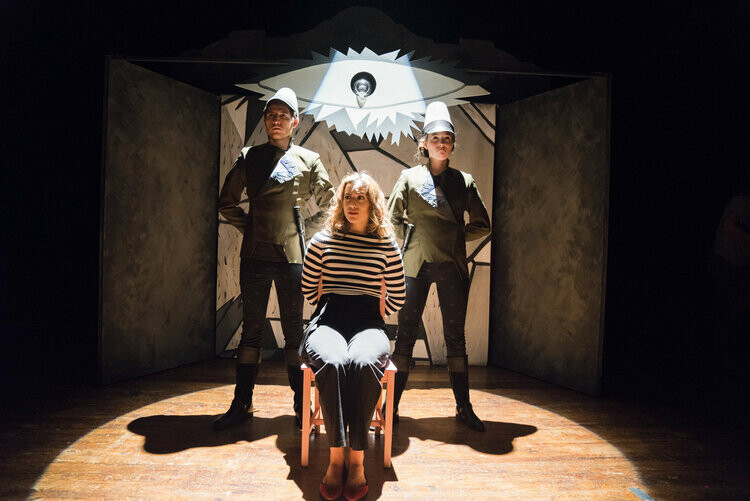
Adrian Iglesias, Thais Menendez, and Adrienne Knapp in Don Cristóbal, freely adapted from El Retablillo de Don Cristóbal by Federico Garcia Lorca by Patti Kalil, Rachel Menyuk, and Eric Swartz for Pointless Theatre Co. Directed by Rachel Menyuk and Eric Swartz. Scenic design by Mel Bieler. Costume design by Frank Labovitz. Lighting design by Niomi Collard. Sound design by Evan Cook. Properties by Amy Kellett. Puppets by Francisco Benavides. Stage manager Hayden Morrissett. Production manager Navid Azeez. Photo by Mark Williams Hoelscher.
Rosalba: This little boy said one day to me, “I have an idea.” His idea was that he was going to open the door. He was three years old. And he went, pretending he had a key, but the keyhole was too high for him on the door he was hoping to open. He looked at me, and I said, “Go on, open it.” He put his hand against the wall, not on the keyhole. And he turned it and said, “I opened it.” That spoke volumes to me. It doesn’t have to be the official door that you open.
We’ve been doing that collectively for one hundred years at least.
Eric: I’m going to be sitting with that story and that metaphor, that image. We have to open the doors within ourselves too. And if we believe the doors are open, they are.
Rosalba: That’s going to give the fuel to do what we need to do. There are so many times you kick a door, and if it doesn’t open, sometimes you have to pause and say, “Maybe that’s not the right door.”
It’s an exciting career, exciting field, exciting people. It’s not about, “I like this or like that.” That is, at the end of the day, not our charge. That’s the charge for the audience. We just have to know that we’re there to support each other, period.

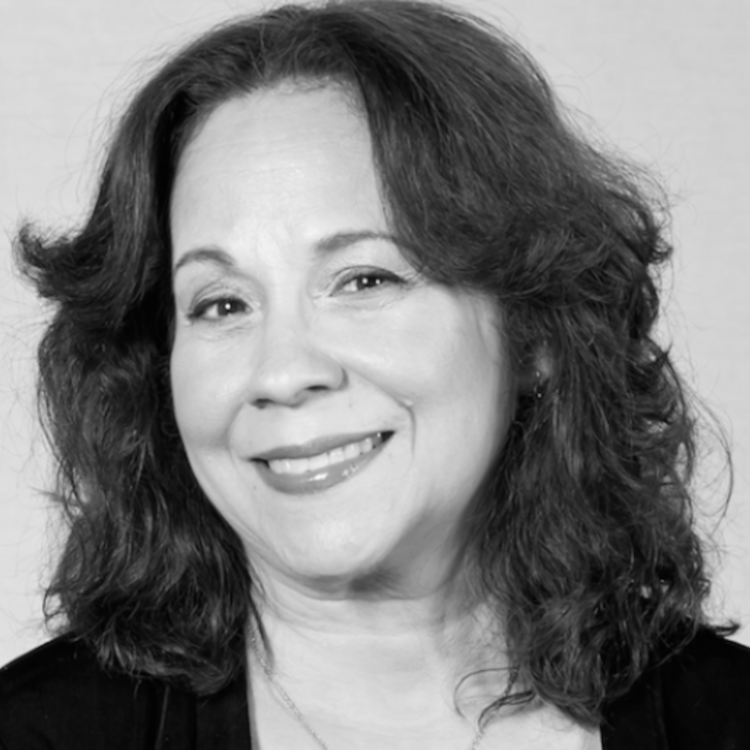
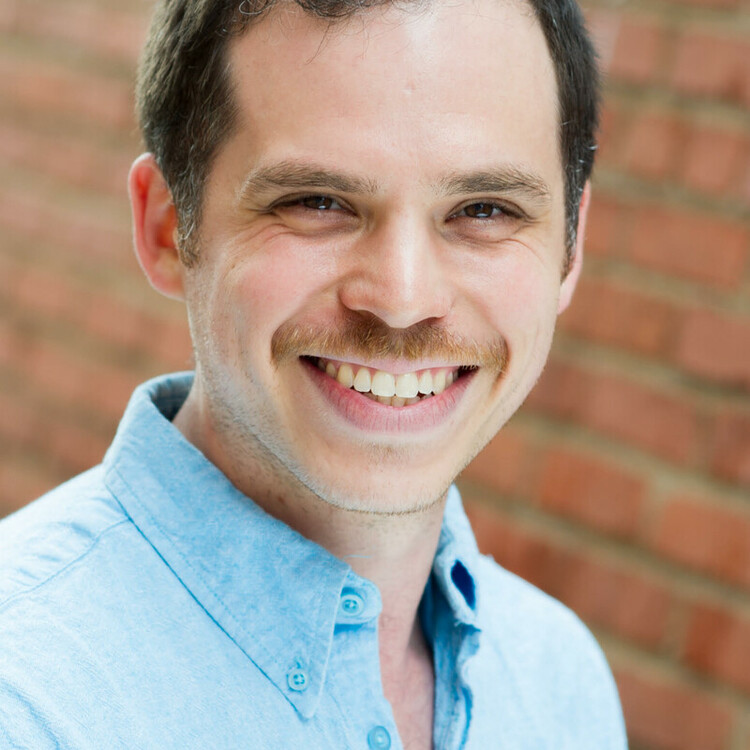
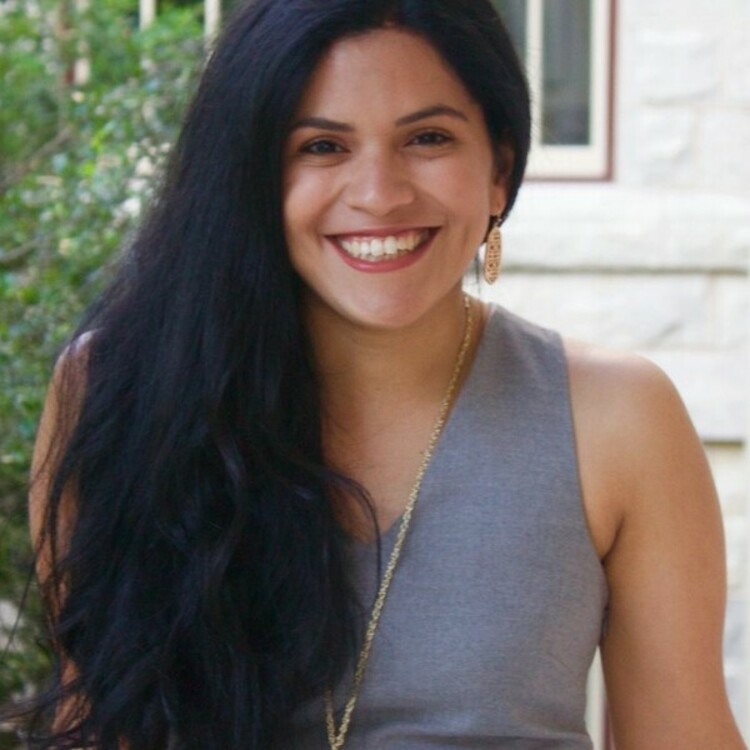
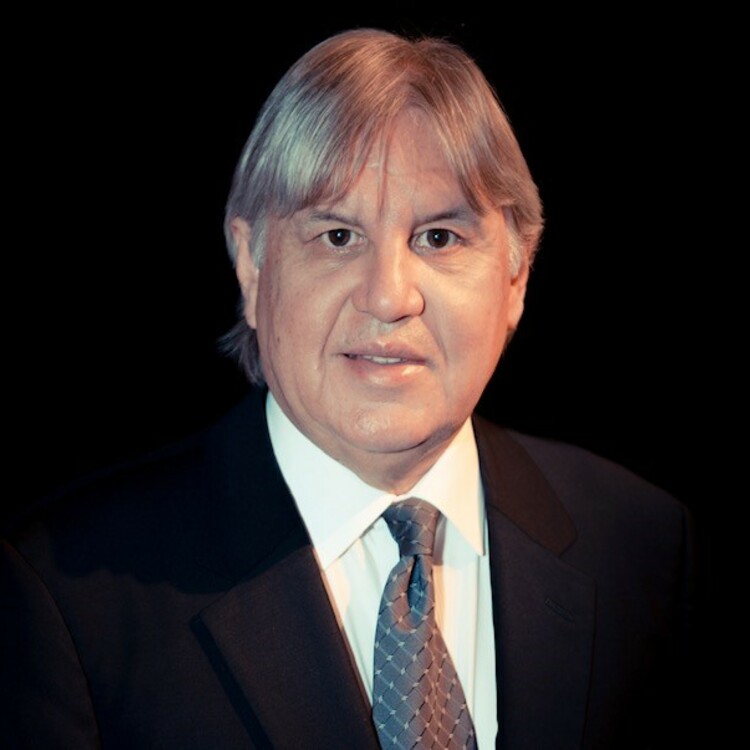
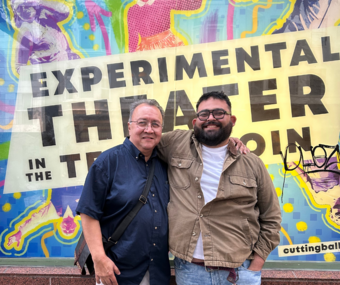


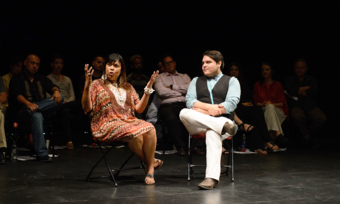


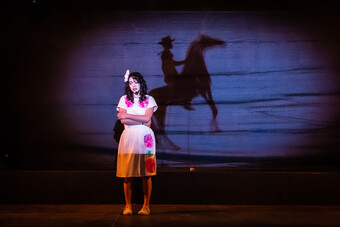


Comments
The article is just the start of the conversation—we want to know what you think about this subject, too! HowlRound is a space for knowledge-sharing, and we welcome spirited, thoughtful, and on-topic dialogue. Find our full comments policy here